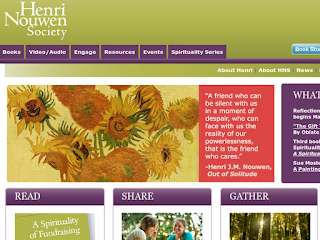The Caribbean islands and coasts and then the north-eastern coast of the USA took a major hit when Hurricane Sandy swept in. It has now weakened to post-tropical cyclone status but continues to drop large amounts of snow and rain as it heads north into Canada. Winds, although much reduced, remain dangerous and damaging.
Our hearts and thoughts and prayers go out to all those affected by Sandy. Loss of life has been relatively low, things could have been far, far worse. But for families who have lost loved ones this is no real comfort. The losses in terms of property and flood damage and infrastructure are, of course, immense. Rebuilding will take a long time, countless homes and businesses are without power. There's no denying the scale and seriousness of this storm.
Global warming - We are living in changing times. Not only was this a powerful storm, it was also the largest Atlantic hurricane on record. Nothing this size has ever been seen before. The storm surge flooded considerable areas along parts of the US coastline.
What are we to make of all this?
Although no single event proves or disproves the reality of global warming and climate change, this record-breaking storm adds fresh evidence to that already accumulated. It makes it that bit harder to deny that the climate has altered, that bit harder to conclude we are doing no harm by pouring large volumes of carbon dioxide into the atmosphere.
Sandy should, at least, give us all pause to think and reconsider the evidence.
Considering faith - And what should people of faith make of Sandy's devastating effects? No doubt there will be voices from some supporters of Islam claiming that the storm is Allah's retribution upon the 'Great Satan'. But most Muslims will not think of it in this way or say any such thing, instead feeling sorrow and sympathy towards fellow humans suffering pain and loss.
Atheists, on the other hand, will take the view that such things happen from time to time. It's regrettable and very sad, but it's how the world works. It's up to us to do what we can to avoid problems - don't build on flood plains, create structures that will withstand earthquakes and violent winds. Don't live at the bottom of steep slopes or close to volcanoes. Commendably, many will help to rescue and support those who are hurt or suffer loss.
But what about those of us who follow the teaching and example of Jesus? The majority may not give a second thought to wondering why such things happen. They too will feel sorrow and sympathy and many will pray for those affected by the storm. Others, however, will give serious thought to the question, 'Why?'
In particular, a common thought following any natural disaster is, 'If there is an Almighty Creator in charge of everything that happens, and if this mighty and powerful person is good, why are such things allowed to happen? Why was the world not created to be a safe place?
Some will see disasters as the consequence of sin coming into the world. Others may see it just as the atheists do - this is the way it is.
Another way - I believe we can do much better than this. I was drawn to express my views recently in a comment exchange on another blog. In the next few days I plan to take my comment and expand it as an article here. Watch this space. (Posted 2nd November, Why is life dangerous?)
Meanwhile, here's an earlier article that seems relevant. It records some thoughts we had during a meeting soon after the Haitian earthquake in 2010.
See also:
- An unprecedented storm, an unprecedented year - 350.org
- Climate change and Hurricane Sandy - Huffington Post
- Climate makes a late appearance - Science Insider
- Great Doddington - A broken world - Journeys of heart and mind
- Hurricane Sandy - 350.org
- Hurricane Sandy and the climate connection - Skeptical Science
- Science and weather - Jesus Creed
- Why is life dangerous? - Journeys of heart and mind




















